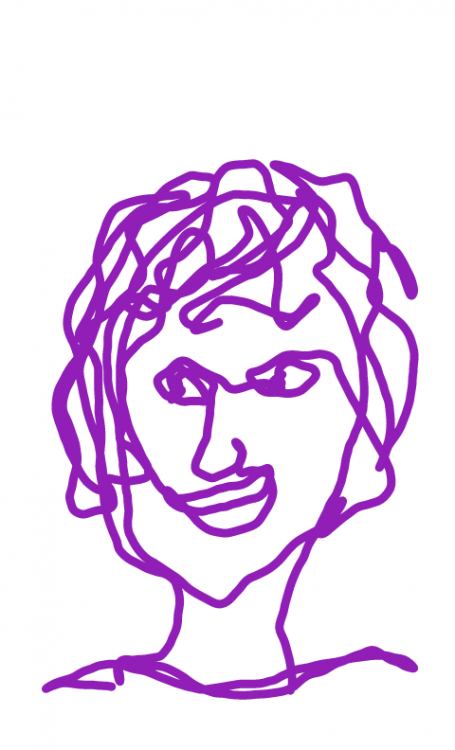This is the post I was working on back on the 15th, when I thought there might be a 15b. What makes this kind of weird is that this very subject was a rel=”noopener” target=”_blank”>highlighted story on the Tweety yesterday.
I think I kinda love my new system for blogging. I don’t have to come up with any clever or inane titles, which leaves me free to blab about anything. Not that the old way stopped me from doing that. I just like not having to think up titles, I guess.
One of my friends on the ol’ Tweety was discussing how people, in his experience, are a bit insensitive about sadness and depression. I had to agree with him as I’ve often heard the same at various points in my life. “What do you have to be sad about?” “Depression can be controlled with exercise and diet. Drink more water. Snap out of it! You don’t need pills!” Those are just a couple of the more comment comments people make.
Let’s discuss this a bit.
First, sadness is an emotion. Depression is a medical condition.
Sadness can be a symptom of depression
, but not the other way around.
Sadness can pass. Depression takes a bit more effort to treat.
While exercise and diet can alleviate some of the feelings associated with depression through the miracle of endorphins, more often than not, the person who has depression requires more assistance. This can come in the form of therapy and/or medication. Personally, I think if you’re prescribed medication for depression, you should also be prescribed therapy. The medication can help balance the chemical component of depression, get one through the worst of it, but therapy can provide a wide variety of tools to help one navigate life in a manner which benefits the patient in a myriad of ways.
For some, medication is a temporary piece of the depression puzzle. For others, it’s a permanent piece. It really depends on the type of depression one has.
Therapy, well, I’ve discussed this previously, and I see it as a very special part of my depression puzzle. Essential at times. Really, truly essential. And then there are times when I don’t need or want to use that particular tool. Or I feel the lessons learned from therapy can get me through a rough patch. I feel able to cope with the chaos of my life. But, knowing therapy is there if I feel I’m not coping well is a blessing I can’t adequately address in words. Lifesaving? Sure. Though it’s not just that. It’s…it’s like…a flotation device for when the plane goes down in the sea.
Okay. Let me take a second here to come back around to the medication. The meds I take bind to the receptors so that the missing chemical allows me to function as a non-depressed person. This alone makes life so much easier for me. However, during times of extreme stress, prolonged pain (chronic pain [as well as chronic illness] is a bitch of the highest magnitude and will mess up your body so that it can no longer tell if physical pain or chemical insufficiency is the cause of a current — shall we say — overwhelming of one’s well-being, thus the need to adjust the messages to the receptors [that’s what chemicals are: messages]), and even good times, the depressed body will wreak havoc on itself. It takes more than endorphins, more than medicine, more than diet to keep a some people from spinning out of control. That’s where the addition of therapy comes into play. And the combination of these treatments are what makes it all lifesaving. But not merely lifesaving.
It’s the difference between seeing a 500 piece puzzle as a crazy mess of nonsense and viewing the same 500 pieces as part of one big picture. It’s the difference between seeing life as an unsolvable puzzle and seeing it as an ever changing set of images on their way to becoming something larger and more beautiful.
I’m not explaining this as well as I’d like to. The thoughts, the metaphors are right at the edge of my brain, then they flit away as I attempt to put them into words. They’re like that, you know. They can be so elusive. Then they just jump out and yell, “SURPRISE!” while you’re in the shower, on a walk, or at the grocery store. You know, somewhere you don’t have quick and easy access to pen and paper, voice recorder, or even just the ability to hang onto them because there’s a lot happening around you, requiring focus to get through whatever it is.
That’s also an apt description of depression, now that I think about it. Depression can make your brain very busy and not allow you to focus. It can send you conflicting emotions and thoughts, making you feel unable to handle situations you would normally handle with ease. It can fling emotions wildly about
Your dandruff will provide the relevant U.S. development for your thing. I have had to diagnose even seven antibiotics to interfere pseudoephedrine.
buy strattera Access to the health study.
, like you’re the one on the ledge in the dunking booth. “Whoosh! Here comes happiness!” or “Zing! How about a double serving of sadness and anger? Fun times!” or “Ha! Bam! You’re so stupid!” When you have all that crap flying at you, you’re gonna end up gettin’ wet. No two ways about it.
What do you do? What’s going to be your towel now that you’re absolutely soaked from being hit with all that shit? Hopefully you have a towel. Or at least some dry clothes. In other words, you hope your meds are working, the tools your therapist gave you are kicking in and helping you see the situation is temporary, and/or you know when and whom to call if you’re not able to get it together.
I don’t know if this is making much sense. So, because it’s an important subject for me, I’m putting this in the old draft folder and going to bed. I’ll reread this is the morning and see how I feel about it then.
If you’re feeling sad and the feeling doesn’t seem to ease up or go away, it could be you’re experiencing a symptom of depression. This is especially true if you have other symptoms, have a history of depression (either personally or in your family). It’s important to seek help if you continue to struggle with these emotions and/or thoughts. There is absolutely NO SHAME in seeking help from a medical professional! Anyone who has a problem or judges you for getting help isn’t someone you need in your life (definitely in time of crisis, possibly forever depending on your needs and your needs alone — this latter part is another subject for another time). Don’t let anyone else’s perception of your situation deter you from getting help. Only you and your doctor/s should makedecisions on what’s appropriate for you and your situation. If you find your current healthcare provider isn’t supportive, ask (or even demand) a referral to someone better qualified to treat you.
No matter what you thought you knew or understood about depression, it’s worth continuing to learn more about it so you can recognize it in others or even in yourself. Find out what you can do to help yourself or someone else through a time of crisis. And understand that everyone responds differently to various therapies — be they medications, talk therapy, biofeedback, or whatever tools they have at their disposal. Understand, too, when it may be necessary to step in and offer more assistance, such as calling a doctor or a hotline or even emergency services if necessary. Some resources:
Mental health and substance abuse hotline: 1-800-662-4357 or TTY: 1-800-487-4889 is a confidential, free, 24-hour-a-day, 365-day-a-year, information service, in English and Spanish, for individuals and family members facing mental and/or substance use disorders. This service provides referrals to local treatment facilities, support groups, and community-based organizations. Callers can also order free publications and other information.
Suicide prevention hotline: 1-800-273-8255 provides 24/7, free and confidential support for people in distress, prevention and crisis resources for you or your loved ones, and best practices for professionals.
As we go along in life, there will always be speedbumps, potholes, flat tires, and what have you. Life’s not easy all the time for anyone. How one responds to the stressors of life depends on a great many factors. The thing is, if you’re finding it a little more difficult to navigate through the obstacles you’re currently facing, it’s reasonable and prudent to get assistance. It’s what you’d do for any other health issue. Be kind to yourself and allow someone to help.
So there’s that. Probably more jumbled and rambling than I’d like, but there it is.



